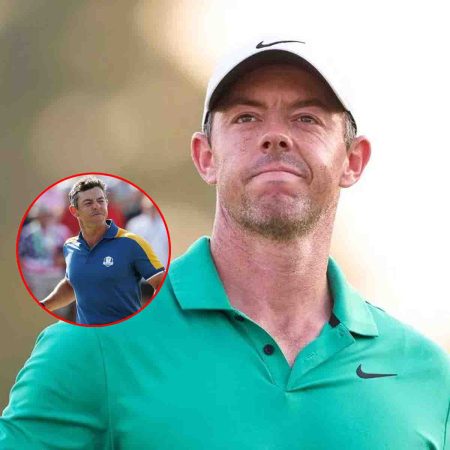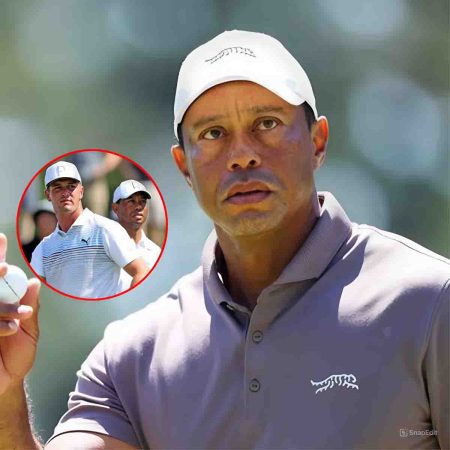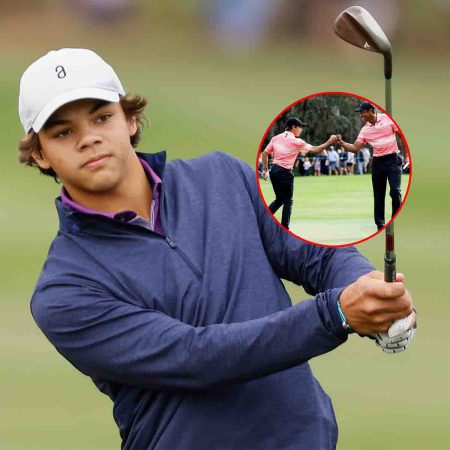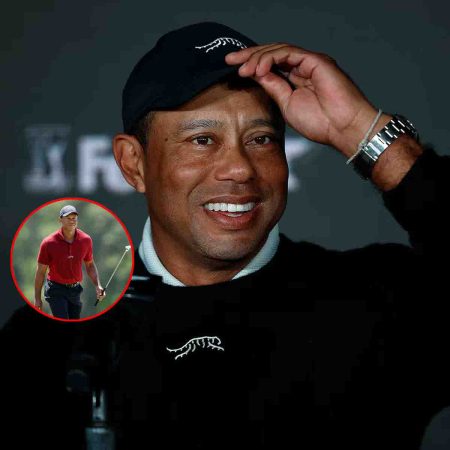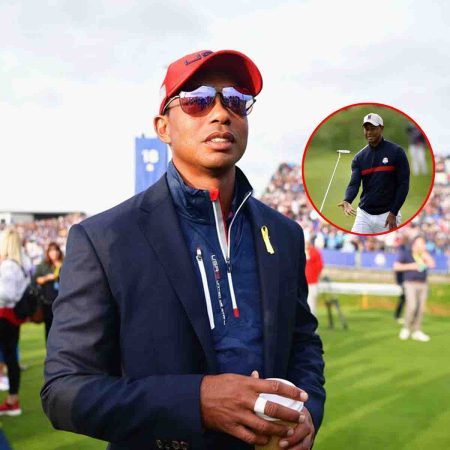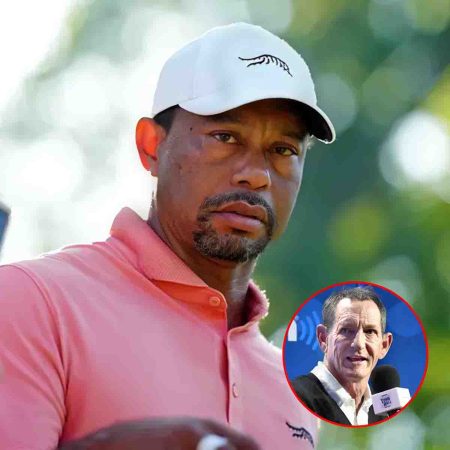In football there’s life on the pitch and life away from it. For Cristiano Ronaldo, his mega-money move to league-leading Al-Nassr in Saudi Arabia represents more than just the round ball.
Ronaldo’s switch to the Middle East will offer a unique challenge to one of the greatest players of all-time.
There is no doubt about his equality, even at the age of 37. But culture, conditions, society – How will Ronaldo adapt to life in the Kingdom of Saudi Arabia?

Former A-Leagues defender and ex-Australia international Jonathan McKain knows Al-Nassr and Saudi Arabian football better than most through his own experiences.
So, what is Ronaldo getting himself into? McKain chats to KEEPUP.
Ramadan: Has he ever played football at midnight?
Ronaldo has won it all in his trophy-laden career – well, almost everything. A European Championship, Champions League, Premier League trophies, LaLiga titles, Serie A silverware and Ballon d’Or honours among other things.
He has also played for the world’s biggest clubs – Manchester United, Real Madrid and Juventus.
But has he played football at midnight?
That is the challenge awaiting Ronaldo during Ramadan in Saudi Arabia. Observed by Muslims worldwide as a month of fasting, prayer, reflection and community, it will impact the Portugal international’s habits and lifestyle, on and off the field.
Ramadan in 2023 will run between March 22 and April 20.

“Once Ramadan comes, he’ll start playing games at 11:30/12 at night. I’m not sure if he is used to that,” McKain, who played for Al-Nassr in 2010-11, told KEEPUP ahead of Ronaldo’s proposed debut this weekend.
There will be a different lifestyle he’ll have to lead as well. During the day, you sleep all day pretty much because you can’t train. You train late at night, get home 2-3 in the morning after sessions.
“Those lifestyle changes, it will be interesting to see how he adapts. That’s not easy for a westerner to come in and adapt to a new lifestyle. Your body clock is resynced. Changing training habits, eating habits for four-five weeks.
“He will score goals in that team and do amazing things I think but the challenges in and around that will be the hardest part for him.”
Then there is the warm weather in Saudi Arabia and varying conditions.
While the Saudi Pro League’s powerhouse clubs boast elite stadiums and facilities, the same cannot be said for some of the smaller teams in the division.
“The conditions have changed since I was there and a lot of clubs have really good facilities, good stadiums and the grass is all really good,” added McKain.
“Even when I was there, some of the grass – it was a different type of grass. People laugh but the kind of cow grass. Whether the ball doesn’t move as quick, some of the stadiums are a bit old.
He is used to the top-level conditions. I’m sure when he starts going to play some of the smaller clubs away from home, the conditions will be really challenging.
“If he can adapt to that, there’s no question he is one of the all-time greats. Those challenges will be unique for him.
“The football will be a little slower to what he is used to. The weather, it does play a major factor.”
‘For his longevity he needs to understand that as well‘
It’s not just adapting to Ramadan and the Saudi lifestyle, but also how Ronaldo treats and speaks to his team-mates.
Ronaldo operates at an elite level and expects the best from his team-mates – just look at some of his antics either on the field or at training. Portugal’s all-time leading goalscorer is an emotional and vocal character.
But he may need to change his approach in Saudi Arabia.
McKain, who worked under Italian legend Walter Zenga at Al-Nassr before he was sacked, previously detailed an example of when he barked orders at a team-mate, it almost left the veteran player in tears.
For locals, it was seen as a sign of rudeness and it was not tolerated.

“He is used to being the big dog and used to playing at big clubs that understand how people of his level. He is going to go to a club with different players and levels,” said McKain as Ronaldo teams up with former Arsenal goalkeeper David Ospina, ex-Bayern Munich and Brazil midfielder Luiz Gustavo and French head coach Rudi Garcia.
“One of the challenges I had when I was there was understanding a lot of Saudis grow up in a tiered society where they have Sheiks, Kings, princes and different levels of people and different society.
“People are allowed to talk to people in different ways. Whereas we’ve been brought up everyone’s the same. You treat people the same, you treat them how you want to be treated. I dare say that may be a challenge for Ronaldo if he isn’t getting that service in a game or in a training session.
“How he reacts, speaks to people and how his body language is viewed because they are quite sensitive to how they’re spoken to and treated in my experience.
They want to be spoken to in the right way and treated the right way. Even though frustrations are just that, frustrations, they could be viewed in quite a negative light.
“How he deals with all his emotions on and off the field will be interesting. He is going into a new culture – how he is used to talking to people, reacting on the field that might be viewed differently now in the Saudi environment.
“He needs to adapt to that as quick as possible. Maybe he has an appetite for that or maybe he doesn’t, but for his longevity he needs to understand that as well.”
A lot has changed since McKain’s Al-Nassr finished fifth in the Saudi Pro League in 2010-11.
But during his time at the Riyadh-based club, there was an instance of just six players at a training session as Zenga tried to instil discipline and punctuality.
“It was different era when I was there. Say training was at 10am, you had to be there at 9:30. Often, often players were turning up at 9:45, 9:50 and sometimes even after the training session,” McKain recalled.
“Just rolling in late and for them, that was kind of it it what it is. When you had an Italian coach who said if you step out of line, you won’t play. When it started happening to one or two players, and some of the senior boys, that’s just what they were used to and how they operated. It was really hard for him to manage that aspect.
“I don’t think culturally he understood how to get through to them. You can’t control that with an iron fist, or that was our experience. If he did do that, he was losing quite a lot of the senior boys. It was a strange one because I’ve been brought up with discipline and timing is important. Italian background is very much that.
“My experience in Saudi was that it was more liberal. Timing was more of an idea rather than a cut-throat this is where you have to be at a certain time. It was interesting for team meetings, dinners and all the like. They weren’t doing it intentionally, it’s just how they’re brought up.
“That’s always a challenge when you go to different cultures and play football in different environments that what you’re used to isn’t necessarily what they’re used to. You have to make sure you adapt as well going into their environment.”
‘I’ll be surprised if he’s experienced an atmosphere like that‘
Ronaldo has played in Manchester derbies, El Clasico, Madrid derbies and Derby d’Italia.
However, a new kind of atmosphere awaits at Mrsool Park and in Saudi Arabia, starting with Saturday’s top-of-the-table blockbuster away to second-placed Al-Shabab.
Rudi Garcia’s Al-Nassr are three points clear atop the standings through 12 rounds.

“A lot has changed since I’ve been there – a new stadium, new training ground, new president, new staff. One thing that won’t change and it will always be the important thing at Al-Nassr is the passion of the fans,” McKain said.
“They are a massive club. The fans are so passionate. He’s played at the biggest clubs in the world, the biggest environments and stages but I’ll be surprised if he experienced some of the environments I played in.
“Whether it be the derby – Al-Hilal v Al-Nassr. That game and those stadiums, I’ve never experienced anything like it, where it’s full to the rafters. It’s split white and blue on one side and blue and yellow on the other. The atmosphere, emotion and tension in the air is something I’ll never forget.
“I’ve never played at the level he has but I’ll be surprised if he’s experienced an atmosphere like that. Every game will be sold out with him.
It’s one thing to be fans and to clap and cheer, but the way the Saudis interact on game day, it’s something I’ve never experienced before.
“The passion they’ll bring will be pretty unique for someone of Ronaldo’s ilk. It will be pretty cool for him.”
‘Holy moly… they’re fantastic!’
Saudi Arabia took the world by storm when they upstaged Lionel Messi’s Argentina in their opening ground match at the 2022 FIFA Men’s World Cup in Qatar.
With a squad consisting of Saudi-based players, Herve Renard Green Falcons stunned the eventual champions in a huge boilover.
 Sami Alnaji of Saudi Arabia looks on during the FIFA World Cup.
Sami Alnaji of Saudi Arabia looks on during the FIFA World Cup.
It came after Saudi Arabia topped their qualifying group in the AFC, ahead of Japan and the Socceroos.
As has been the case, the Saudi Arabia national team have utilised a pool of players who ply their trades in the domestic league.
 Abdulelah Al-Amri tussles with Poland’s Robert Lewandowski at the World Cup.
Abdulelah Al-Amri tussles with Poland’s Robert Lewandowski at the World Cup.
From Al-Nassr and Al-Hilal to Al-Shabab, Al-Ittihad and Al-Ahli. Of the 22-man World Cup squad, six came from Al-Nassr – Sultan Al-Ghannam, Abdullah Madu, Abdulelah Al-Amri, Ali Al-Hassan, Sami Al-Najei and Nawaf Al-Aqidi.
While they do not play abroad, their quality is not to be questioned.
 Ali Al-Hassan of Saudi Arabia battles for possession at Qatar 2022.
Ali Al-Hassan of Saudi Arabia battles for possession at Qatar 2022.
“From my perspective, their real goal in Saudi and the Middle East is to play for one of the bigger clubs – whether it’s Al-Hilal, Al-Nassr, Ittihad, Shabab – one of the bigger boys that will dominate most years in those leagues. That’s their objective,” McKain said.
“Their objective isn’t to play for Manchester United, Manchester City, Real Madrid, Barcelona or Bayern Munich. They want to play in their own country, in their own culture and environment, at one of the biggest clubs. They get looked after really well if they manage to play for one of those clubs.
In my time there, some of the players at the club where I was were amazing. I’m thinking Wow, I’ve played in Romania and Europe and with the national team, some of these boys technically… holy moly. They’re fantastic.
“From that perspective, they could easily play in much higher leagues.
“But clearly the will and desire wasn’t there to explore something different to what their used to which is completely fine. Whatever motivated them is a driving force.”
Source: newsnow



